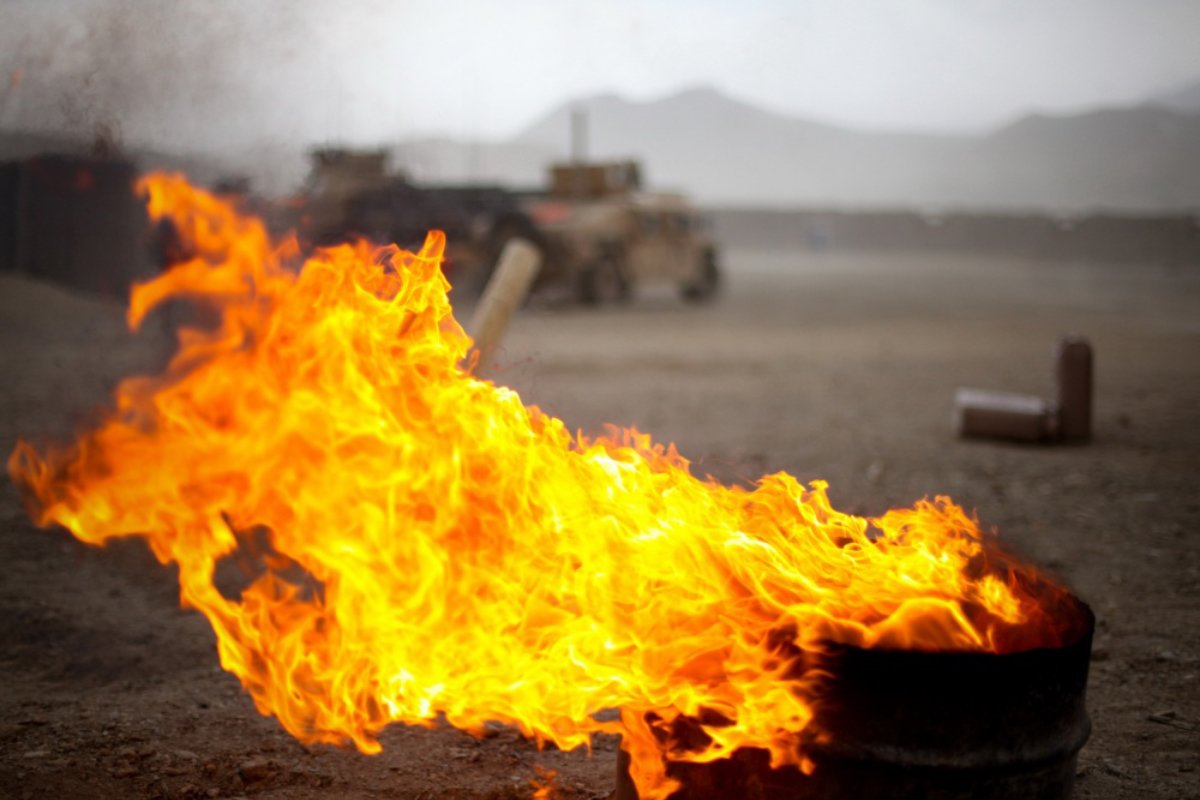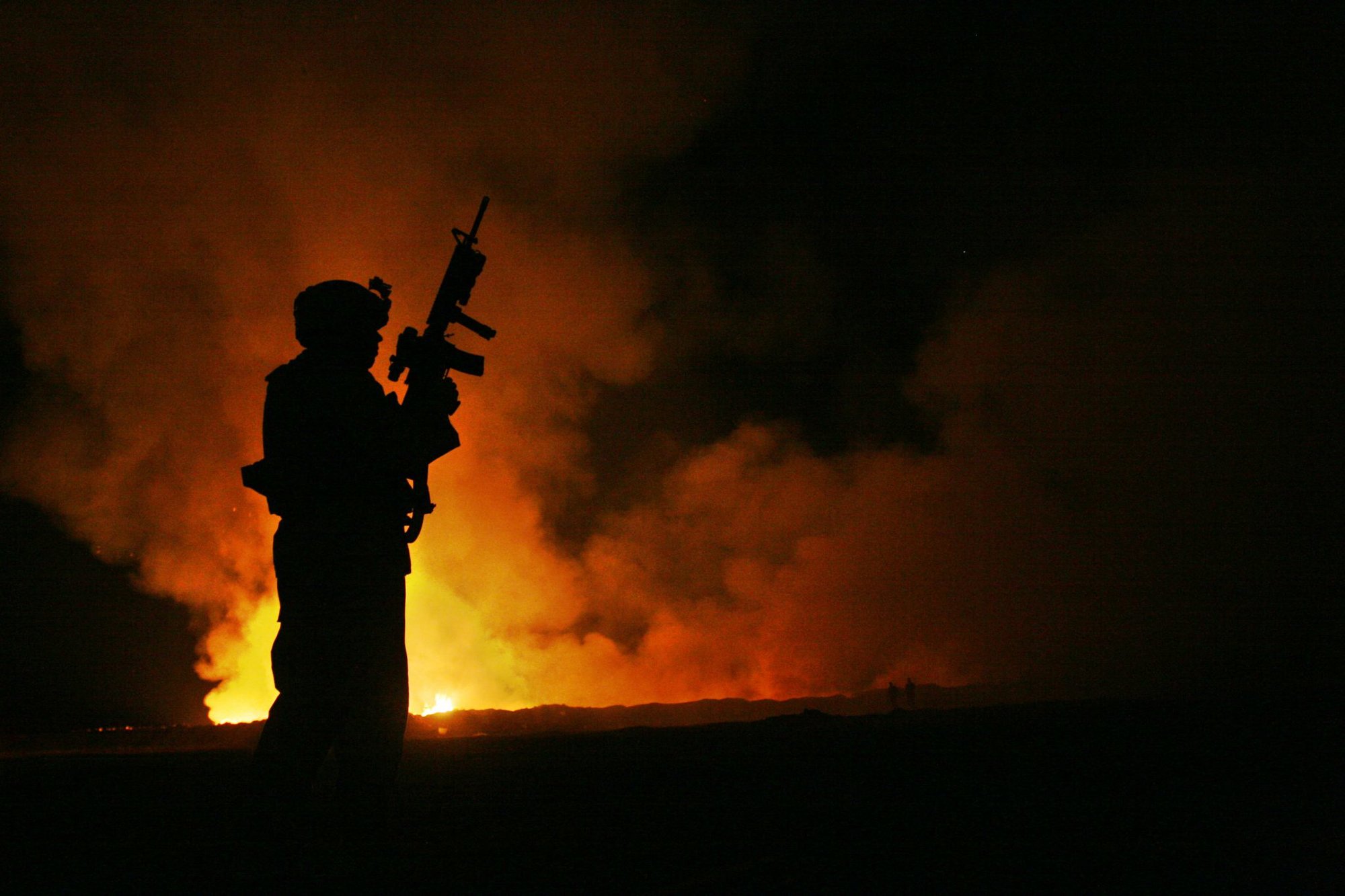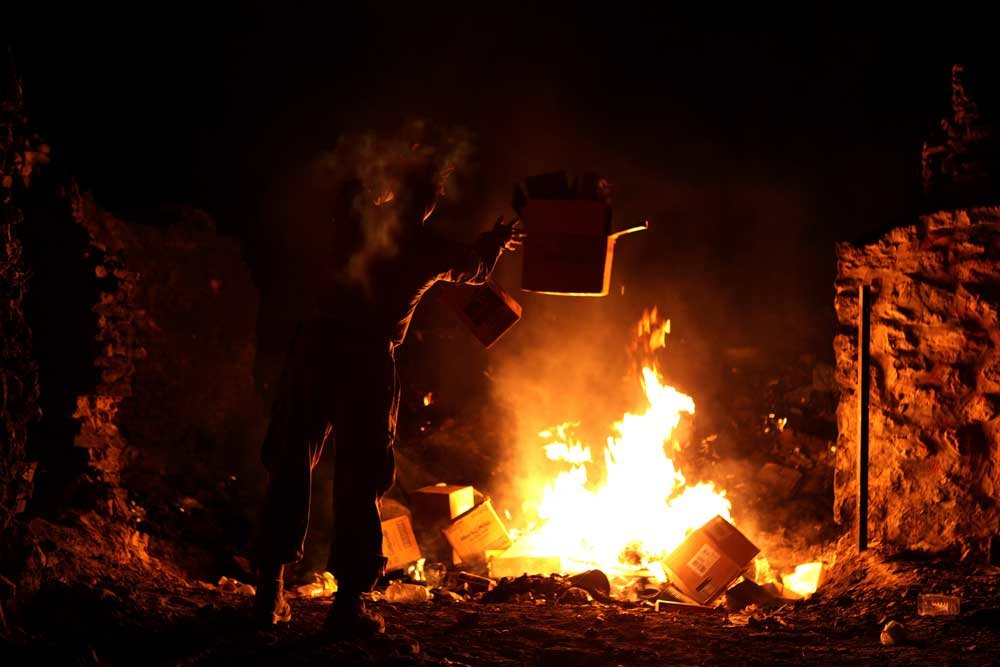VA Adds 9 Rare Respiratory Cancers to List of Burn Pit Illnesses

The flames of a burn pit pick up with the winds as a storm approaches Combat Outpost Tangi Aug. 31, 2009, in the Tangi Valley, Afghanistan. US Army photo by Staff Sgt. Teddy Wade.
The Department of Veterans Affairs is adding nine rare respiratory cancers to the list of illnesses presumed to be caused by exposure to burn pits, giving veterans afflicted with those diseases an easier path toward obtaining disability benefits.
The new policy includes veterans who served in the Southwest Asia theater of operations from Aug. 2, 1990, to the present, or in Afghanistan, Uzbekistan, Syria, or Djibouti from Sept. 19, 2001, to the present.
Nine respiratory cancers were added to the VA’s regulations on Tuesday, April 26. They are:
- Squamous cell carcinoma of the larynx
- Squamous cell carcinoma of the trachea
- Adenocarcinoma of the trachea
- Salivary gland-type tumors of the trachea
- Adenosquamous carcinoma of the lung
- Large cell carcinoma of the lung
- Salivary gland-type tumors of the lung
- Sarcomatoid carcinoma of the lung
- Typical and atypical carcinoid of the lung
“Veterans who suffer from rare respiratory cancers associated with their service deserve the very best America has to offer—but they’ve had to wait for the care and benefits they deserve for far too long. That ends now,” VA Secretary Denis McDonough said in a statement.

Medical experts and veteran advocates have long believed that smoke and other emissions from the burning of waste can cause long-term health effects, but veterans have struggled to prove that they had contact with toxic burn pits during their service, resulting in denials of their claims.
But when a condition is designated as a presumptive illness, the department processes claims under the assumption that the condition was likely caused by an individual’s military service, making it easier to obtain benefits.
The VA did not provide an estimate of how many veterans would be impacted by the new policy. All nine cancers are classified as rare, meaning they have an incidence rate of fewer than six cases per 100,000 people in the US.
Because the cancers on the list are so rare, some veteran health organizations worry their addition won’t help the hundreds of thousands of veterans suffering from more common — and deadly — cancers, said Chelsey Simoni, a registered nurse and executive director of the nonprofit HunterSeven Foundation. Simoni told Coffee or Die Magazine some of the more prevalent illnesses she sees through her work include blood, brain, and pancreatic cancers. Simoni also said the federal government is still not doing enough to help veterans get an early diagnosis and treatment.
“We are getting these young, otherwise healthy post-9/11 veterans with rare cancers seen commonly at ages 65-75. The majority of them go undiagnosed and I speak as a provider and can attest to this firsthand,” Simoni wrote in an email to Coffee or Die.

Officials are failing to deal with the burn-pit-related health problems before they occur, Simoni said, and instead are waiting until veterans are seriously ill to take action.
“We are being entirely reactive instead of being proactive,” she wrote.
The addition of the cancers to the presumptive list follows a push by federal officials last fall to expedite benefits for veterans exposed to burn pit smoke and other toxins overseas. As part of the initiative, officials announced the VA had partnered with the American College of Preventive Medicine to provide a five-tier certificate training program in military environment exposures. The VA said it would require its providers to complete at least the first tier of the training program.
Last August, the VA also fast-tracked benefits for veterans suffering from three other illnesses: chronic asthma, rhinitis (inflammation of the inner lining of the nose), and sinusitis (inflammation or swelling of the tissue that lines the sinuses). As of March, the VA says it has processed more than 16,500 claims for those illnesses, approved around 12,000, and granted more than $36 million in retroactive benefit payments.
Veterans, survivors, and dependents who had a claim previously denied for any of the nine newly added cancers may now be eligible for disability compensation. The VA says it will contact impacted veterans and survivors and provide information on how to reapply.
Read Next:

Hannah Ray Lambert is a former staff writer for Coffee or Die who previously covered everything from murder trials to high school trap shooting teams. She spent several months getting tear gassed during the 2020-2021 civil unrest in Portland, Oregon. When she’s not working, Hannah enjoys hiking, reading, and talking about authors and books on her podcast Between Lewis and Lovecraft.
BRCC and Bad Moon Print Press team up for an exclusive, limited-edition T-shirt design!
BRCC partners with Team Room Design for an exclusive T-shirt release!
Thirty Seconds Out has partnered with BRCC for an exclusive shirt design invoking the God of Winter.
Lucas O'Hara of Grizzly Forge has teamed up with BRCC for a badass, exclusive Shirt Club T-shirt design featuring his most popular knife and tiomahawk.
Coffee or Die sits down with one of the graphic designers behind Black Rifle Coffee's signature look and vibe.
Biden will award the Medal of Honor to a Vietnam War Army helicopter pilot who risked his life to save a reconnaissance team from almost certain death.
Ever wonder how much Jack Mandaville would f*ck sh*t up if he went back in time? The American Revolution didn't even see him coming.
A nearly 200-year-old West Point time capsule that at first appeared to yield little more than dust contains hidden treasure, the US Military Academy said.












